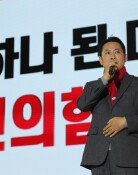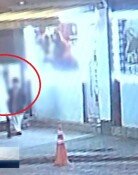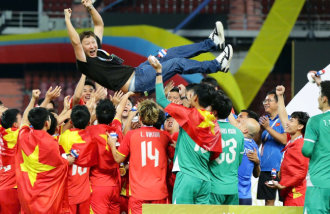Reassessment of Park Chung-hee
Reassessment of Park Chung-hee
Posted November. 23, 2010 13:10,
When U.S. President Harry Truman left the Oval Office in 1953, his approval rating was 22 percent. Even his successor Dwight Eisenhower declined Trumans invitation for lunch before he was inaugurated. Twenty years later, the evaluation of Truman changed. The decisions that pushed down his approval rating such as dropping nuclear bombs on Japan in 1945 and participation in the Korean War in 1950 drew the spotlight. Truman is now considered an honest man who fought for conviction and a little giant who was ahead of his time, according to Failures of the Presidents written by Thomas J. Craughwell.
Richard Norton Smith, an American historian and expert on presidents, suggested eight standards that can evaluate a chief executive objectively: no fear of risk; authority that touches people; fighting great enemies; mystery; disregard of his or her evaluation by the next generation; no consideration of present standards; ignorance of unintended results; and achievements in various fields. In short, if a president acts with disregard for popularity, future generations could change their perceptions of him or her like Truman.
Gyeonggi Province Gov. Kim Moon-soo said Monday, I spent my life opposing President Park Chung-hee but now I understand him. As a business major at Seoul National University, Kim said professors believed Korea was incapable of having a car industry because it lacked the technology, capital and market and no precedent had been made by developing nations. Park got Korea to pull it off because he pushed for what he believed in with a can-do spirit, Kim said. On Parks successor Chun Doo-hwan, Kim said, The new airport on Yeongjong Island (Incheon International Airport) he started in his term has become one of the worlds best airports. On President Lee Myung-bak, the governor said, He is the worlds best in urban planning and architecture.
The Roh Moo-hyun Foundation, in charge of conducting projects commemorating the late former president, has applied for a government subsidy of 18 billion won (15.9 million U.S. dollars) for a project honoring Roh. Though a memorial building for Roh should be properly built, it is regrettable that nothing is being made to honor former presidents Rhee Syngman, who set the foundation of the Republic of Korea and overcame the Korean War, and Park, who helped Korea achieve the miracle of the Han River. Though Rhee was forced to resign due to the 1960 student revolution and Park was called a dictator, a reassessment of their achievements and mistakes is in order.
Editorial Writer Park Seong-won (swpark@donga.com)






![넘치는 전재수 과거 사진들…유죄의 증거일까, 무죄의 증거일까[청계천 옆 사진관]](https://dimg.donga.com/c/138/175/90/1/wps/NEWS/IMAGE/2025/12/20/132997378.1.jpg)
